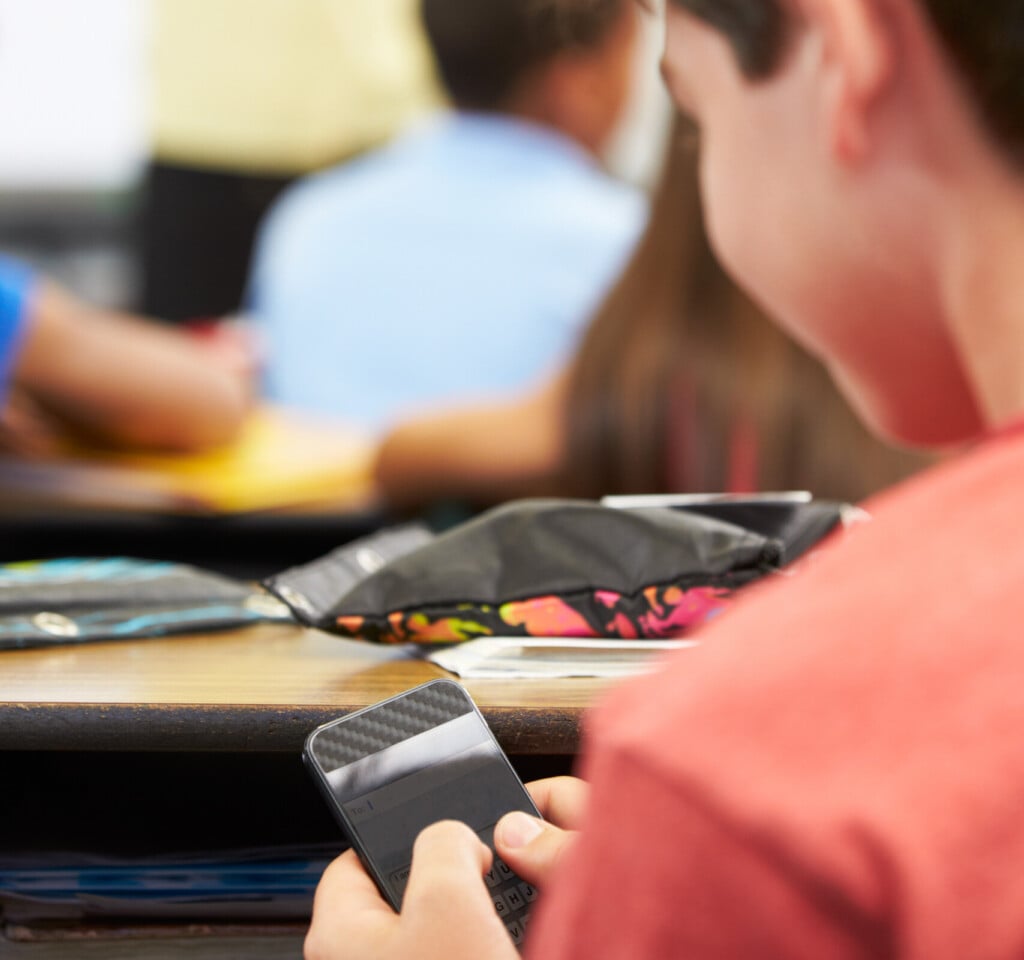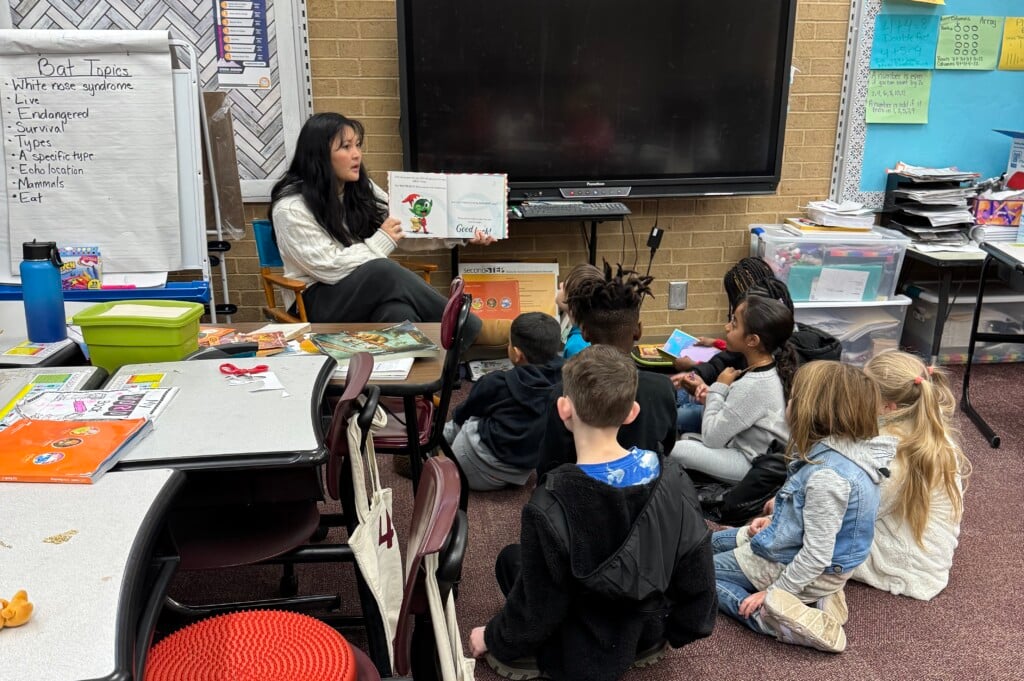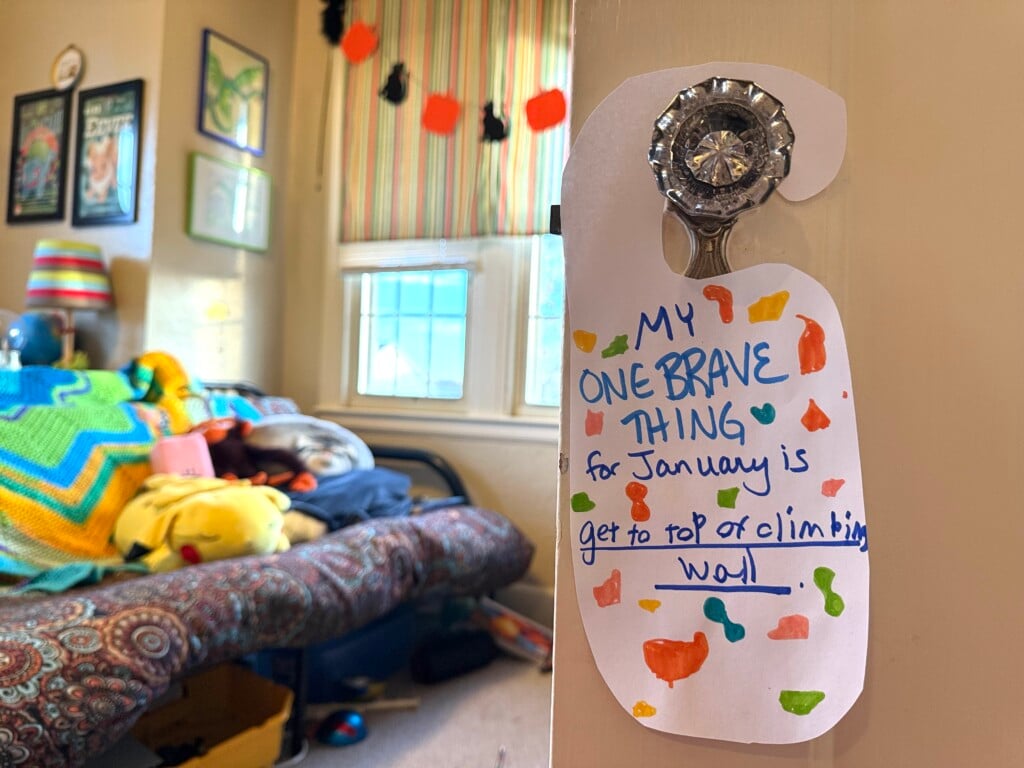No Cells After the Bell
Students in Oklahoma classrooms will soon have one less distraction keeping them from focusing on their schoolwork.

A new state law will require school boards to adopt a policy prohibiting kids from using their cellphones during the day going into the 2025-26 school year. The statewide ban comes after Governor Kevin Stitt signed Senate Bill 139 into effect at the beginning of May to limit students’ access to their mobile devices while on school grounds.
The new legislation, coined the “Bell to Bell, No Cell” bill, was authored by Sen. Ally Seifried, R-Claremore, who has spent the last two years spearheading the education measure to see students’ academic outcomes improve.
“By prohibiting cellphones from ‘bell to bell,’ we are prioritizing students’ mental health and academic success,” Seifried said in a press release following the Senate Education Committee’s passage of the measure in February. “It’s beyond time to eliminate classroom distractions and get back to learning.”
Bill details and enforcement
SB139’s language states that students will be restricted from using their cellphones — along with other personal electronic devices such as smart watches, headphones, laptops and tablets, except for school-issued devices — from the first daily instructional bell to the last, for the entirety of the 2025-26 school year.
Each school district will implement the restrictions and enforce disciplinary measures at their discretion during the year-long ban, followed by the option of continuing or changing the policy for the 2026-27 school year and beyond.
National efforts to limit cell phone use in school
Siefried’s bill has garnered attention from advocates like Melissa Henson, vice president for the Parents Television and Media Council, or PTCMC, whose organization strives to promote responsible entertainment for children, particularly inside school walls.
“The Parents Television and Media Council has been supportive of states’ efforts to combat problematic cellphone use during school hours,” Henson said. “As various school districts have tried different approaches, consensus seems to be growing that bell-to-bell cellphone bans are most effective.”
Oklahoma now joins 21 other states that have signed or already passed laws or policies regarding student cellphone usage in K-12 classrooms, as of May 2025, according to Campus Safety Magazine.
The recent rise of these state-led campaigns is reflective of a larger effort to help students stay curriculum-focused, with 90% of National Education Association members, for example, supporting school policies prohibiting personal devices during instructional time, Henson noted.
Their endorsement for change aims to reduce the potential negative effects of screentime at school, with PTMC’s leader citing concerns “that smartphones are distracting, social media use impacts the mental health of students, and that smartphones can be weaponized against classmates and teachers.”
What’s more, “teachers and school administrators are also observing classroom disruptions and disciplinary problems … while others are concerned that these devices … are actually impairing learning and negatively impacting student achievement and retention,” she added.
Conversely, many schools that have instituted mobile bans or limitations are, according to Henson, “seeing benefits including fewer power struggles between students and teachers of cellphone use and more interaction between students.”
Cell phone policies in local school districts
Bixby Public Schools, for example, has seen favorable results since implementing a K-9 bell-to-bell ban for 2024-25, with SB139 now impacting all 8,000 students across all grades going into the new school year.
“The early responses from teachers first semester were overwhelmingly positive,” Bixby Superintendent Rob Miller said of the district’s first ban. “They felt like they had regained control of the classroom, they didn’t have to do as much micromanagement.
“The reason I really appreciate it (SB139) is it supports our teachers, because our teachers need to have as much attention from the students as they possibly can.”
Bixby’s northernmost neighboring school district, Tulsa Public Schools, has had a policy in place since 2001 limiting the use of telecommunications devices by students, and reclarified these expectations going into its 2024-25 year.
“Research shows that having devices like cell phones and smart watches in the classroom can negatively impact academic outcomes and long-term learning retention,” TPS said in a letter sent to parents in July 2024. “We appreciate support from families, students, and team members in creating and maintaining the best possible learning environments for all students.”
TPS will continue to see thousands of phones pocketed across its 33,600-student body as a result of Seifried’s bill.
Stay informed and engaged
As Tulsa-area districts approach the upcoming school year under new legislative language, Henson said families can stay informed and involved by advocating for classrooms that are free of digital distractions.
“Parents can bring their concerns to their local school board,” she said. “Parents can also delay getting their own child a smartphone and try to work cooperatively with their child’s friends’ parents to encourage their peer group to delay getting smartphones.”
Miller added that he would also like to see more of an effort to train youth to better handle their devices inside and outside the classroom, “educating students and helping them be comfortable with responsible use of the technology since it’s not going away,” he said.
Under SB139, students will still be able to access and use their personal electronic devices in an emergency or for medical issues, if needed.
SB139 was coauthored by Sen. Micheal Bergstrom, R-Adair; Rep. Chad Caldwell, R-Enid; and Rep. Anthony Moore, R-Clinton.
 Art Haddaway is a journalist and photographer with over 20 years of experience covering a variety of topics for various publications and organizations. He is also the author of “Reflections of an Editor: Insights & Observations of a Small-town Newsman.”
Art Haddaway is a journalist and photographer with over 20 years of experience covering a variety of topics for various publications and organizations. He is also the author of “Reflections of an Editor: Insights & Observations of a Small-town Newsman.”




